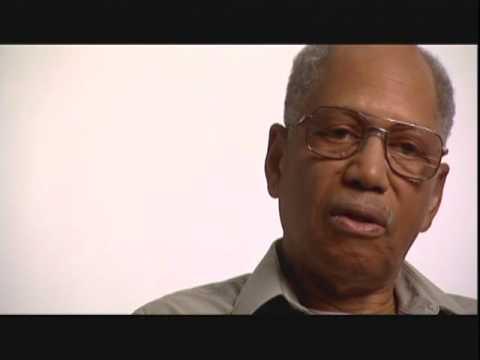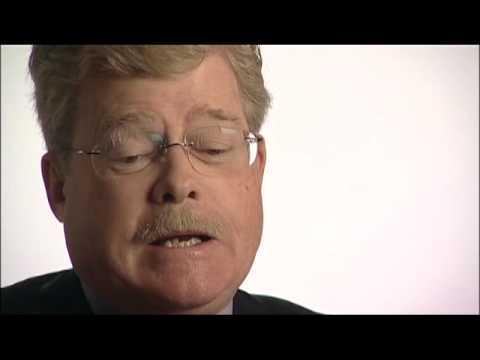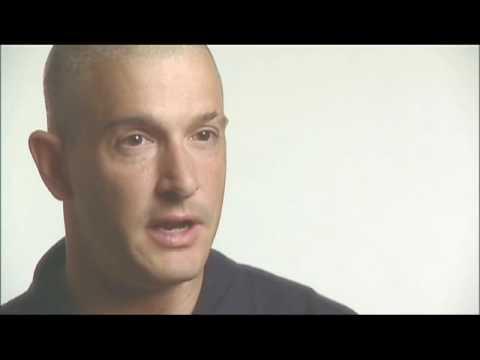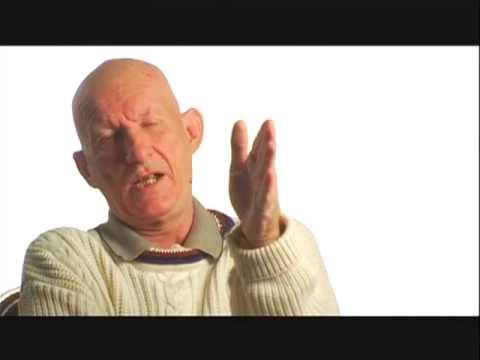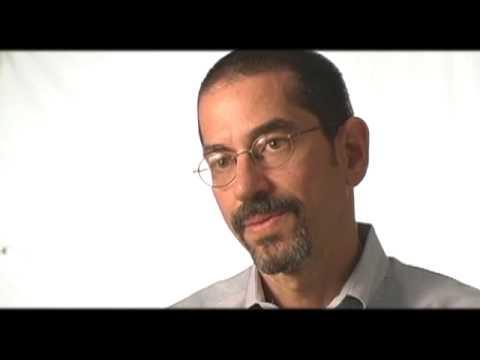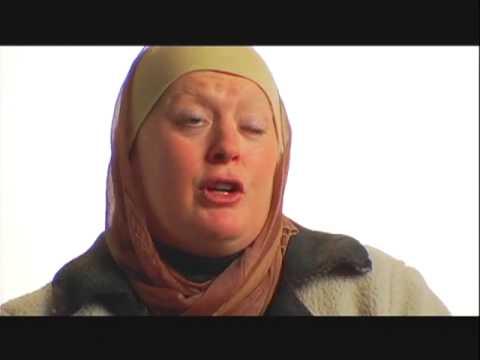Mark O.
I found out after a CAT scan that I had a large tumor. It was seven pounds, eight ounces, and fourteen inches long. It was a big shock, because the tumor had gotten that large and not presented yet. The next month-and-a-half, I had tests of every kind and several biopsies. At the time, I was looking at a compound cancer. It was a sarcoma. In addition, there was a malignant fibroma that was also involved, which was a major portion of the tumor. I lost a significant portion of my digestive tract. The tumor had involved a major portion of the blood vessels that supply blood to my intestines, so when the tumor was excised, they had to remove everything else that lost its blood supply as well. I'm back to living an adjusted life, but I'm living well and enjoying it. I'm on a permanent medication machine to keep things balanced. I don't have a lot of the parts in the body that handle digestion anymore, so I regulate that with drugs. I have to be on a fairly strictly regulated, non-fat diet. My body can't digest fats anymore. They check my cholesterol level every year as part of my lab work to see how I'm absorbing. It always comes back with a red flag that says excessively low cholesterol.
The dumping syndrome is caused by stomach bile getting into the colon. The colon doesn't handle that well, so it eliminates it as fast as possible. Any fats that are allowed in my diet, my body produces extra stomach bile for that, which then throws my medication out of whack. Every once in a while, things sneak up on me and it causes that problem. Mostly, that's handled. One of the things I've found is that there's not a drug directly made for the challenges that I have with dumping syndrome. I'm on a higher than normal dose of a cholesterol reduction resin, which functions by absorbing stomach bile, so that it can't get back into the system and let the cholesterol in. Fecal incontinence is the same thing. It's a challenge I've learned to deal with, and I've had to learn to predict. If I get certain fats in my diet, it causes large amounts of gas, so I get diarrhea. There's not much I can do to control it, so I have to pay attention, and it's a challenge.
Navigating the health care system is sometimes a struggle with the cancer issues that I have. There are not drugs that are made specifically for my needs. In one case, I'm on what is available as an over-the-counter drug. I typically take four, sometimes six or eight times the over-the-counter dosage. The health care people say, "We won't provide for that because you can buy that over the counter. It's not a medication." I said, "No, you don't understand. I can't survive without this. I can't afford that many pills every day." I use Imodium. I take four as soon as I get out of bed every morning and then two more at a time as needed through the day until I reach ten. Another issue is with the cholesterol reduction drug. I'm on it for a beneficial side effect. The doctors just prescribe it at higher than normal dosages to reinforce that side effect. There again, the health insurance doesn't want to cover that because it's an old school drug, and it doesn't even work that well for what it was made for. So every time I move around or anything happens, I keep getting dropped out of the plan. They say, "We're not covering this. We're not doing that." Initially, it was really easy to let the health care people say, "You can't have this. We won't cover it. It's an over-the-counter medication." I did discover that you can go to the health care providers and say, "I need a prescription for this medication, even though it is over-the-counter." You can go to a specialist and get a letter from him that says, "Mark O'Neill specifically has to have this in order to function." Then you can file the right forms, and you can file an appeal. You go in front of an appeal board and say, "Can I have a special exemption for this medication?" Generally, they will cover it. But it's a hassle. Then if something changes, you got to go back. I'm getting better at going back. I know all the steps to go talk with my physician, then with the specialist, then get the form for the appeal, then file all the papers.
My family is a lot more important to me. Before, I was very concerned with where I was going as Mark O'Neill and not so much where I was going as the father of my family. Having to sit down and talk, especially with my wife and my son, right before the surgery really caused me to rethink, "What is my role in life? What do I want to do with this? Where do I want to go?" Tomorrow, I might have to say goodbye. That caused me to change my priorities and think about, "Am I being the dad that I want to be? Am I being the husband that I want to be?"
I have a sister that's 16 years younger than I am, and we were fairly distant before the surgery. During the surgery, I don't know how she did it, but she talked one of the doctors into giving her a used IV bag, which she very carefully sliced open, put in a rubber ducky, half filled it with water, and then taped it back together. While I was in recovery, she stuck it on my IV stand, which was a big hit with all the nurses. That became a symbol for me and the family of maintaining our perspective and our sense of humor. That was the beginning of a great healing in the relationship between my sister and I. I was away in the military before she was in second grade, and I never really got to know who she was as a person. Now she's around and we're a lot closer friends.
I do feel guilty. The conductor of my son's band was a personal friend. About two weeks before my diagnosis, he was having severe abdominal struggles and went to the doctor. He came back and said that he had been diagnosed with abdominal cancer. He was going in for a biopsy to see what it was. Then I started having problems. Within a week of each other, we both found out that we'd been diagnosed with sarcoma. There are a couple of hospitals here in the Seattle area. He and I both were on the table within a week of each other also. They opened him up, closed him back up and said, "There's nothing we can do. We can't help, because it's so involved." It was a real challenge for me, because I came in here, the surgery went well, my recovery went well, and I went home. He went home and ended up working with hospice care and watching him die slowly. It was like, "Why me?" Everything was so parallel and the outcome was so different. I never did know. It's the most innocent comment people make, "Remember, we used to have this director?" It bites at me because I have a connection to that director that we don't have anymore. With the family, it has changed everything. I don't struggle with that guilt, because it's not my fault that everything has changed. I do have the disease. Everything is different, but I can see that as not my fault. I sometimes have to re-convince myself of that. Stop and say to myself, "No, you didn't do this."
Most of my experience is sharing with people the positiveness of life and the positiveness of interaction with other people. One visually-impaired friend of mine is an active bicyclist as well, and we have a great time going to places. You can't miss him, because he's got a great big sign on his back that says "Blind cyclist," and then everybody wants to come talk. He's an incredible downhill skier. You can't show up at a ski area with a big vest that says, "Blind skier" and a big vest that says "Blind guide" and not have a chance to share with people that you can live a strong life. You can live a positive life. I think what I've had to learn is that it's not right to say, "I can't." It's right to say, "I'm not able to" or "I don't want to." Because of my diet, I can't mountaineer quite like other people do. I just have to find a different way to do it. That's a strong message to people.
To me, live strong is a fluid term. It's living a life that I want to live. It's living a life for other people, because one of the changes that I recognized in my survivorship is that my life is not all about me. My life is about the impact and the message that I carry for other people. Living strong means getting to know the people around me, getting to know their needs and sharing with them that something can be done. There is always hope. There's always reason to keep your sense of humor. There's always something there.
I'm Mark O'Neill. I'm 44 years old, and I'm a four-year abdominal cancer survivor.
